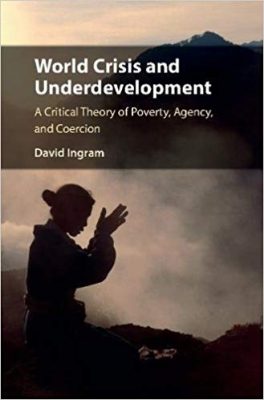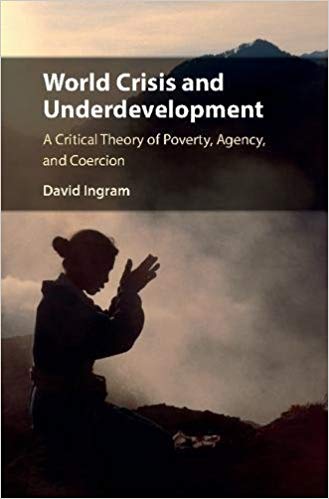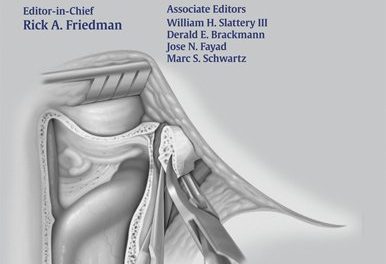 Author: David Ingram, PhD
Author: David Ingram, PhD
Publisher: Cambridge University Press – 376 pages
Book Review by: Sonu Chandiram
Today, July 19, 2018 the world’s population is 7.637 billion people. When this book was published sometime in 2018, the most recent reported information on poverty around the world was in 2015 from the World Bank. The data and data-based estimates were sobering:
- In 2015, over 700 million people around the world, the majority of them women, lived in extreme poverty, earning only about half as much as men. In sub-Saharan Africa, 35.2 percent of people lived on $1.90 a day. For poor people with this daily income in other regions, the numbers are also grim: 13.5 percent of inhabitants in South Asia, mainly India, with its 1.36 billion people today (see http://www.worldometers.info/world-population), 5.6 percent in South America and the Caribbean islands, and 4.1 percent in East Asia and the Pacific region.
- Earlier data from 2010 showed that 2.6 billion people lacked access to basic sanitation, 2 billion lacked access to essential drugs, 1 billion lacked access to adequate housing, 774 million could not read or write, 218 million children were forced to work for their subsistence, 100 million lacked access to clean and safe water, and 74 million elementary school-age children did not attend school.
The objective of the World Bank, a cooperative organization of 189 member countries with headquarters in Washington D.C. with staff members from some 170 countries and offices in over 130 locations, is to substantially lower, perhaps end extreme poverty by 2030, and to promote shared prosperity.
Much has already been done by the World Bank, the largest global development organization, since its founding in 1948, which succeeded the International Bank for Reconstruction and Development or IBRD begun in 1944.
One of its goals is to decrease to 9 percent, by the year 2020, and further, to 3 percent by 2030, the number of people worldwide living on $1.90 a day. As of today this percentage is already down to 10.7 percent, having moved forward 62.2 percent from its baseline of 13.5 percent.
This book discusses some of the socio-politico-economic causes of poverty and suggests some solutions to alleviate it. Its content is organized into three Parts with seven chapters, the titles of which we list below to provide you a basic overview of issues discussed in it:
Introduction: Global Poverty and Inequality: How Deeply Should We Be Concerned?
- Part I – Agency and Development
- Recognition, Rational Accountability, and Agency
- Agency and Coercion: Empowering the Poor Through Poverty Expertise and Development Policy
- Part II – Global Crisis
- Forced Migration: Toward a Discourse Theoretic Policy Governing Political and Economic Refugees
- Imperial Power and Global Political Economy: Democracy and the Limits of Capitalism
- Human Rights
- Human Rights and Global Injustice: Institutionalizing the Moral Claims of Agency
- Making Humanitarian Law Legitimate: The Constitutionalization of Global Governance
- Nationalism, Religion, Deliberative Democracy: Networking Cosmopolitan Solidarity
A succinct description of the nature of this book is presented on its first page: “World Crisis and Underdevelopment examines the impact of poverty and other global crises in generating forms of structural coercion that cause agential and societal underdevelopment. It draws from discourse ethics and recognition theory in criticizing injustice and pathologies associated with underdevelopment.”
“Its scope is comprehensive, encompassing discussions about development science, philosophical anthropology, global migration, global capitalism and economic markets, human rights, international legal institutions, democratic politics and legitimization, world religions and secularization, and moral philosophy in its many varieties.”
The author David Ingram points out in the Preface that underdevelopment around the world has now become an urgent and important issue of deep concern globally, just as, and alongside with human rights and social injustice that emerged previously. It basically means that this collective act of omission (underdevelopment) resulting in and perpetuating poverty worldwide, is now just as gravely unjust as acts of commission like human rights violations and deliberate political subjugation of the poor.
His analysis and reflection of the worldwide social crisis of poverty is based on critical theory, and as examples he points out to the thinking and writings by the German sociologist Habermas on the theory of communicative rationality and action, particularly the 1976 book Communication and the Evolution of Society. Essentially Hebarmas, a modernist, pragmatic thinker, wrote that outcomes can be predicted based on actions taken in any sphere within society, and it is better to take positive steps today to avert socioeconomic problems in the future
Dr. Ingram also cites the work of German philosopher Axel Honneth who founded the Institute for Social Research, and authored the 1992 book Integrity and Disrespect: Principles of a Conception of Morality Based on the Theory of Recognition. Honneth in turn cites the work Natural Law and Human Dignity In a review of this book, he writes that the author Ernst Bloch “sought to uncover a single moral intuition at the heart of the widely divergent approaches taken in the tradition of natural law.”
This is a good book focused on the worldwide crisis of poverty and its causes, and the solutions that need to be taken, which must begin with looking at empirical data, followed by a change in our thinking, a setting of goals, action plans and most importantly, their implementation. Fortunately, the work of the World Bank for the last 70 years or so has alleviated poverty, but in my view, much more needs to be done by the leaders of underdeveloped countries.
Author:
David Ingram is Professor of Philosophy at Loyola University in Chicago. He received his PhD from the University of California at San Diego in 1980, where he received his first exposure to critical theory. He is the author of several books. His book Reason, History and Politics (1995) was awarded the Alpha Sigma Nu Prize in 1997.
His life can be read from these pages as well: he has organized boycotts on behalf of the United Farm Workers Union, accompanies Loyola’s students on their journey of awakening to Central America and the Caribbean, worked with Guatemalan refugees and community organizers in Chicago, and learned about the possibilities and limits of development while visiting the slums of Kibera in Nairobi, Kenya with aid providers. (This is the largest urban slum in Africa according to a Wikipedia article).
He received Casa Guatemala’s Human Rights Award in 1998 for sponsoring Guatemalan speakers to visit Loyola.






